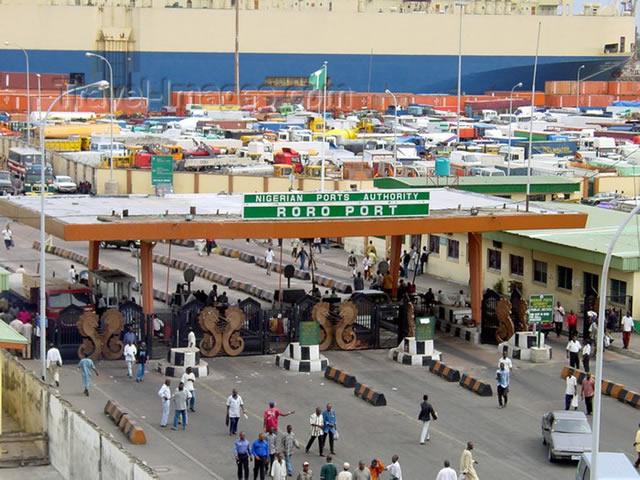The United States government has criticised Nigeria for delaying the approval of import permits for American agricultural products. In its 2025 National Trade Estimate Report on Foreign Trade Barriers, the US Office of the Trade Representative (USTR) described the situation as a long-standing trade barrier that has blocked easy access for American goods into the Nigerian market.
The report stated that despite several efforts made since 2019, Nigeria had been slow in approving permits for various categories of US food and agricultural products. The USTR added that Nigeria’s slow process for reviewing certificates, inspecting goods, and conducting testing contributed to delays at the ports. It also said many traders are now using informal channels to move goods because of these challenges.
The US also accused Nigeria of inconsistency in applying sanitary and phytosanitary measures, which it said causes confusion among exporters. According to the report, Nigeria’s import regime remains complicated and restrictive. The US noted that while Nigeria’s average Most-Favoured Nation (MFN) tariff rate in 2023 was 12%, agricultural products attracted 15.9% tariffs and non-agricultural goods 11.4%. It also mentioned that Nigeria imposes extra charges that significantly increase the final cost paid by importers.
The USTR complained that Nigeria maintains combined duties and other import fees of up to 50% on 79 tariff lines, with 17 lines exceeding the 70% limit agreed under ECOWAS rules. It also listed 25 categories of goods that are still banned from entering Nigeria, including poultry, beef, spaghetti, fruit juice, used cars older than 12 years, soaps, and certain alcohol products.
On Customs operations, the report said Nigeria still largely operates a manual system, and also highlighted issues like corruption, inconsistent application of regulations, and long delays in clearing goods. Although Nigeria approved a $3.1 billion Customs modernisation project in 2020 to automate operations, the US said the project has faced delays and legal challenges.
Reacting to the claims, the Nigeria Customs Service (NCS) said the US accusations were “unfair” and “misinformed.” The National Public Relations Officer of Customs, Abdullahi Maiwada, told The PUNCH that Customs had made major improvements in automation and trade facilitation. He explained that Customs was not responsible for making fiscal policies but only for implementing them.
Maiwada pointed to several reforms by the NCS, such as the Authorised Economic Operator programme and the Advanced Ruling System, both aimed at speeding up cargo clearance. He revealed that Nigeria Customs had developed an indigenous clearance software, B’Odogwu Unified Customs Management System, which has already started operating at the PTML Command and will soon cover all Customs commands nationwide.
He also said Nigeria had invested in non-intrusive inspection technologies, including scanners at the Apapa port and geospatial intelligence tools for better border management. “We are one of the most automated Customs systems in Africa,” he insisted.
The US report also criticised Nigeria’s public procurement system, stating that American companies face difficulties accessing government contracts because of lack of transparency and payment delays. It said that even though Nigerian laws require a “Certificate of No Objection” from the Bureau of Public Procurement before contracts are awarded, many agencies still fail to comply.
On intellectual property rights, the USTR acknowledged Nigeria’s passage of the Copyright Act 2022 but said enforcement remained weak. It mentioned that counterfeit goods like fake drugs, auto parts, and other products are still easy to find in Nigeria, putting consumers at risk.
The report also raised concerns about Nigeria’s digital trade policies, pointing out that data localisation rules requiring the storage of Nigerians’ data inside the country create uncertainty for businesses. It also noted that the Finance Acts of 2020 and 2021 introduced new taxes on digital services, affecting American companies operating in Nigeria.
In the insurance and advertising sectors, the US complained about restrictions on foreign participation, especially in reinsurance for oil and gas risks. It also pointed out that all adverts must be registered with the Advertising Regulatory Council of Nigeria.
On foreign exchange, the USTR admitted that Nigeria had tried to unify exchange rates in 2023 and lifted forex bans on 43 items. However, it said challenges still exist, as companies experience delays in getting approvals to repatriate funds. As of March 2024, it said out of a $7 billion backlog, the Central Bank of Nigeria had only cleared $4.6 billion, with $2.4 billion still pending.
The US also described Nigeria’s ports, especially Apapa in Lagos, as among the most expensive globally. It blamed congestion, poor infrastructure, and maritime insecurity for the high costs. According to the report, it takes about 30 days on average to clear a container ship at Apapa.
Although the US acknowledged Nigeria’s efforts to improve its ports, including the creation of the Ministry of Marine and Blue Economy, it concluded that barriers to trade and investment in Nigeria remain widespread.
Meanwhile, the Ministry of Industry, Trade and Investment declined to comment directly on the US report. However, in an earlier statement reacting to US tariffs under former President Donald Trump, the Minister, Dr Jumoke Oduwole, admitted that the tariffs harmed Nigerian exports. She said the development had strengthened Nigeria’s resolve to improve the quality of its non-oil exports to meet international standar
